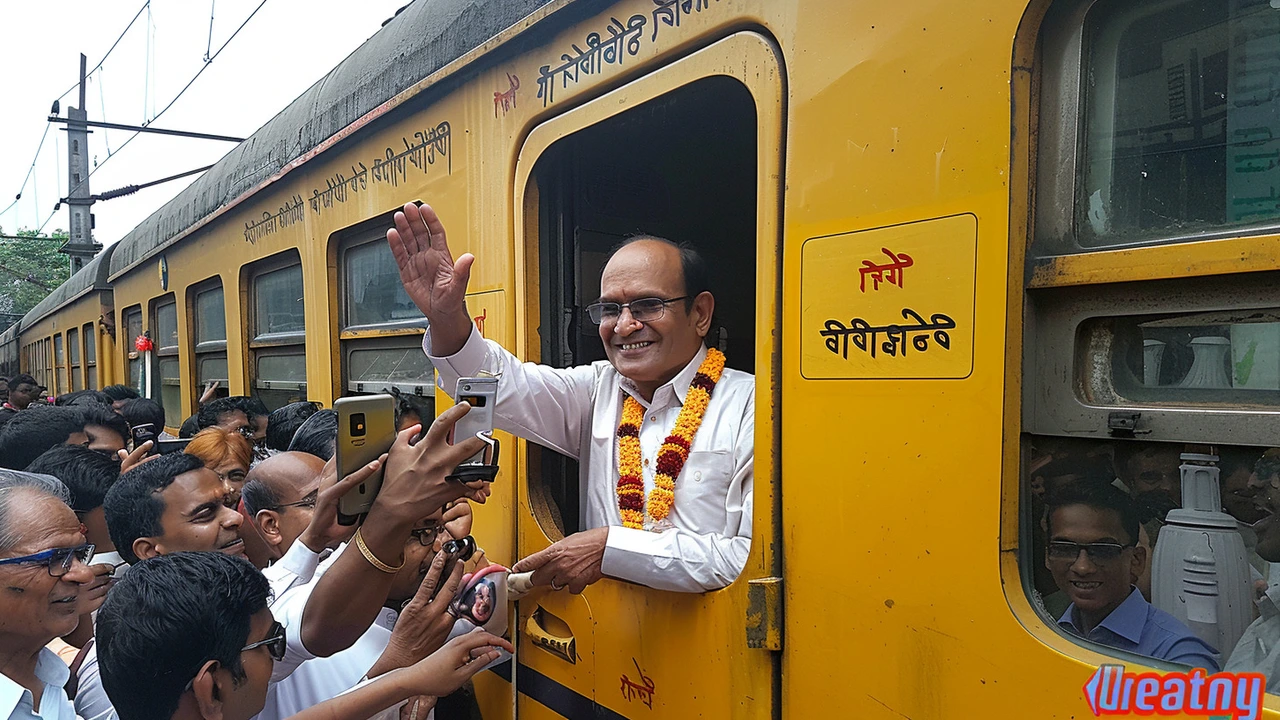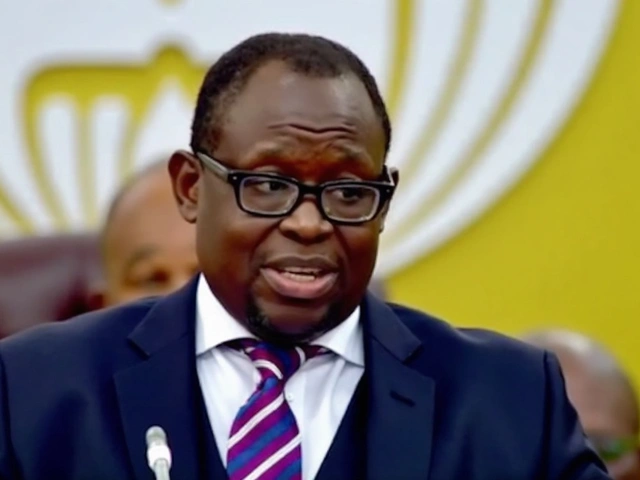BJP Faces Unexpected Challenges in Stronghold Seats
The 2024 Lok Sabha elections have brought unexpected challenges for the Bharatiya Janata Party (BJP). Despite being a dominant force in Indian politics, recent data reveals that the BJP is trailing in 15 of its previously secured stronghold seats. This development comes as a surprise to many, as these seats have been consistently held by the party over the last three elections. As of 11:45 am, while the BJP maintains control in 79 seats, it finds itself losing grip over 15 significant ones.
Implications of Trailing Behind in Key States
The seats in question are not just any constituencies; they represent regions where the BJP's influence was thought to be unshakable. The states most affected by this shift include Madhya Pradesh, Karnataka, and Gujarat, each with a substantial number of these stronghold seats. In Madhya Pradesh alone, the BJP has been leading in 16 significant constituencies, while Karnataka and Gujarat each boast 15 such seats. However, the new data suggests an emerging vulnerability in these areas, requiring the party to re-evaluate its strategies and connect more effectively with the electorate.
Noteworthy Contests in Maharashtra and Rajasthan
Two of the most closely watched battlegrounds are in Maharashtra and Rajasthan. In Maharashtra’s Jalna constituency, the Indian National Congress’s (INC) Kalyan Vaijinathrao Kale has taken the lead, causing concern among BJP supporters. Similarly, in Rajasthan’s Churu constituency, the INC’s Rahul Kaswan is ahead. These developments are particularly important as they reflect a broader trend where opposition parties are gaining ground in areas once considered safe havens for the BJP.
Beyond Maharashtra and Rajasthan, there are seven constituencies with a remarkable history of BJP dominance, having won them nine consecutive times. These include Gandhinagar, Surat, Bhind, Bhopal, Damoh, Indore, and Vidisha. The boundaries of these constituencies were altered during the 2008 delimitation, yet the names—and BJP's winning streak—remained unaffected until now.
The Role of Delimitation and Changing Political Landscapes
The delimitation exercise in 2008 significantly changed the electoral map of India. While it altered the boundaries of many constituencies, the BJP managed to maintain its stronghold in several. This strategic control is now under threat, suggesting a possible shift in voter sentiment or effectiveness of local campaign strategies. The political landscape in these areas may be undergoing a transformation that the BJP needs to address urgently to secure its traditional seats.
Strategic Adjustments for the BJP
Given the current state of affairs, the BJP’s leadership will likely need to explore various strategies to reclaim their influence. This could involve focusing on local issues more intensely, deploying more resources to stronghold regions, and increasing voter engagement initiatives. Understanding the reasons behind the shift, whether it's a change in voter preference, effective opposition campaigning, or local administrative issues, will be crucial for the party moving forward.
The Broader Impact on National Politics
While the BJP retains the majority of its previously won seats, the fact that it is trailing in 15 key constituencies is more than a minor setback. It raises questions about the party’s future prospects and its grip over its traditional voter base. The opposition parties, particularly the Indian National Congress, appear to be capitalizing on any dissatisfaction amongst voters, presenting a formidable challenge to the BJP’s continued dominance.
Future Outlook and Political Strategy
As the 2024 Lok Sabha elections progress, all eyes will be on how the BJP addresses these emerging challenges. The outcomes in these 15 constituencies could set the stage for broader shifts in power dynamics at the national level. It remains to be seen whether the BJP can rally and regain lost ground, but what’s clear is that the party’s stronghold seats are no longer as invincible as they once seemed.







Rahul Sharma
June 4, 2024 AT 19:00 PMThe latest vote tallies are not merely a statistical footnote; they represent a seismic shift in the political topography of India, especially when one considers the BJP's entrenched dominance over the past three election cycles; the fact that the party now trails in fifteen historically secure constituencies begs a comprehensive interrogation of both macro‑level voter sentiment and micro‑level constituency dynamics, which, in turn, may be symptomatic of broader disenchantment with governance narratives that have hitherto gone unchallenged. Moreover, the data underscores a palpable erosion of confidence in regions such as Madhya Pradesh, Karnataka, and Gujarat, where the BJP's vote share has historically eclipsed 55 %; this erosion is accentuated by the emergent vigor of the Indian National Congress's ground campaigns, which appear to have capitalized on localized grievances ranging from agrarian distress to perceived neglect of urban infrastructure. Consequently, the BJP's strategic calculus must now integrate a granular analysis of constituency‑specific issues, rather than relying on a monolithic nationalistic appeal. Additionally, the redistricting legacy of the 2008 delimitation, while historically advantageous to the party, may have inadvertently introduced demographic heterogeneity that now manifests as electoral volatility; this is evident in the nuanced voting patterns observed in previously homogenous strongholds like Gandhinagar and Surat. In light of these complexities, it would be remiss not to acknowledge the role of media narratives and digital misinformation ecosystems, which have amplified dissenting voices and, in some cases, sowed confusion among the electorate. Therefore, the BJP's leadership is compelled to recalibrate its outreach mechanisms, perhaps by deploying more localized cadres, enhancing transparency in governance, and fostering participatory platforms for constituent feedback. The party's ability to adapt to these evolving dynamics will ultimately determine whether it can reclaim its erstwhile invincibility or succumb to a fragmented opposition. Finally, one must consider the psychological impact of such setbacks on the party's cadre morale; a demoralized ground force can exacerbate electoral losses, creating a feedback loop that further entrenches opposition gains. In sum, the current trajectory is not merely a temporary dip but a potential harbinger of systemic realignment in India's democratic fabric.
faye ambit
June 4, 2024 AT 19:18 PMIt seems the party’s hubris finally met its match.
Ethan Smith
June 4, 2024 AT 19:43 PMFrom a statistical standpoint, the swing in these regions is noteworthy; the BJP’s vote share declined by roughly 6‑8 % on average across the fifteen seats, while the INC saw a corresponding rise, indicating a fairly balanced shift rather than an isolated anomaly.
william wijaya
June 4, 2024 AT 19:53 PMHonestly, this is a textbook case of political entropy: when a dominant party stops iterating on its policy feedback loops, the system self‑organizes towards equilibrium, and we’re watching that equilibrium manifest as a redistribution of electoral capital; the jargon‑heavy diagnostics point to a need for granular, data‑driven field operations.
Gerald Hornsby
June 4, 2024 AT 20:16 PMLooks like the tide’s turning 🤔.
Evelyn Monroig
June 4, 2024 AT 20:26 PMWake up, people! This isn’t just a political mishap-it’s the result of a covert agenda orchestrated by global shadow networks aiming to destabilize India’s sovereignty; the timing, the leaks, the sudden swing-it all screams engineered manipulation.
Hina Tiwari
June 4, 2024 AT 20:50 PMi think the local issues like water shortage and job loss are pulling voters away from the party they used to trust.
WILL WILLIAMS
June 4, 2024 AT 21:00 PMExactly! The voters are hungry for real change, and flashy promises won’t cut it-let’s see some bold moves on the ground!
Barry Hall
June 4, 2024 AT 21:23 PMGood point, the data speaks for itself.
Lemuel Belleza
June 4, 2024 AT 21:33 PMThe analysis is solid, but the party needs to step up its game.
Rahul Sharma
June 4, 2024 AT 21:43 PMWhile the critiques are valid, one must also consider the temporal lag between policy implementation and voter perception; the BJP’s recent infrastructure projects may yet translate into regained trust once tangible benefits manifest in daily life, thereby potentially reversing the current drift.
Emily Kadanec
June 4, 2024 AT 22:10 PMHonestly, the whole thing is overblown-people just want better roads and jobs, not endless political drama.
Rahul Sharma
June 4, 2024 AT 22:20 PMTrue, the electorate’s primary concerns remain economic development and basic services; however, the narrative framing by political actors can amplify or diminish these concerns, shaping the ultimate voting behavior.